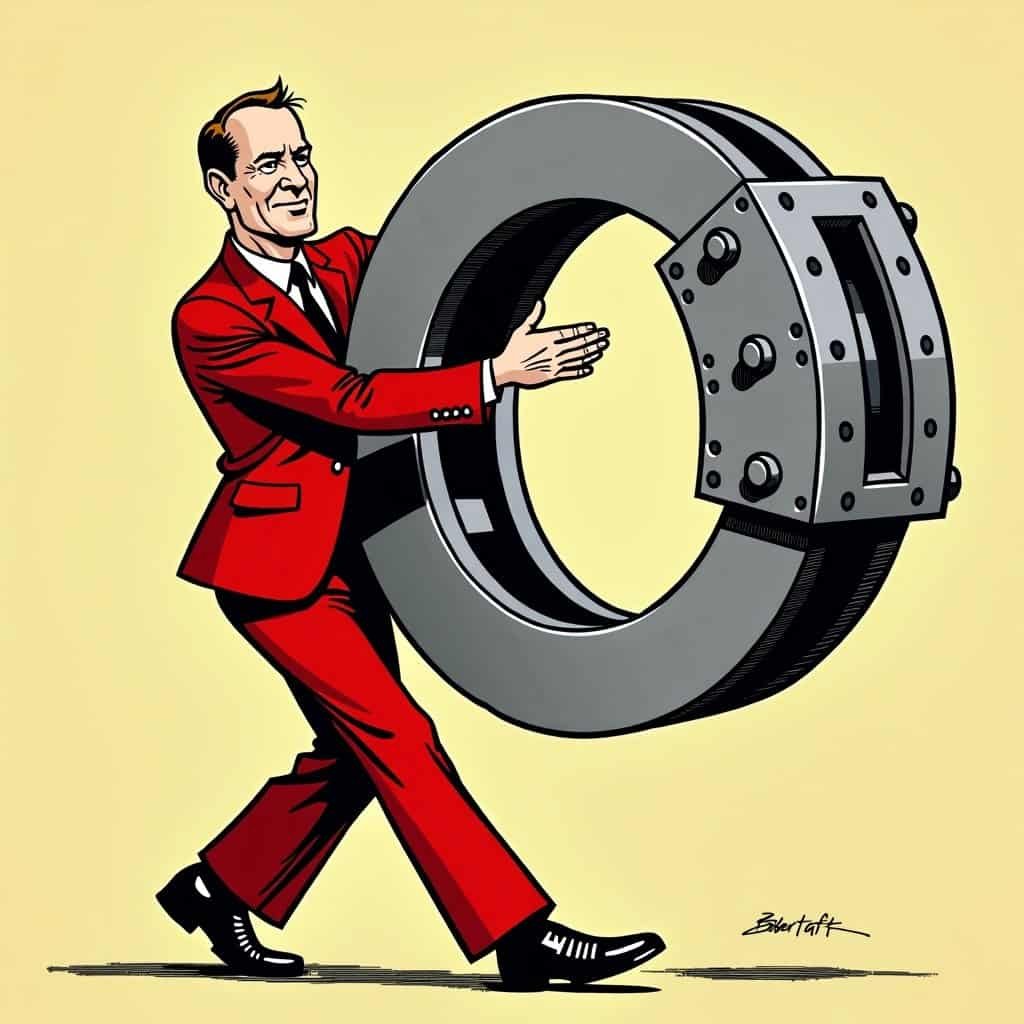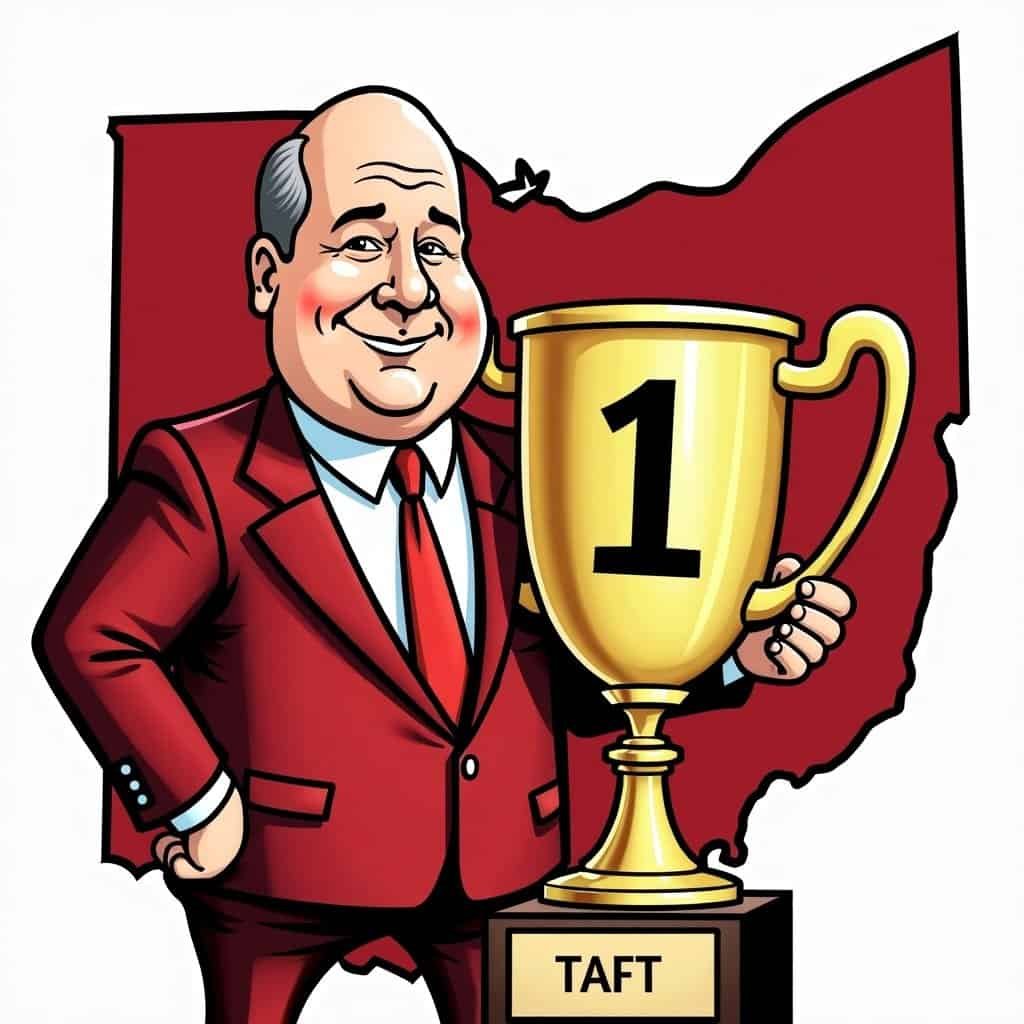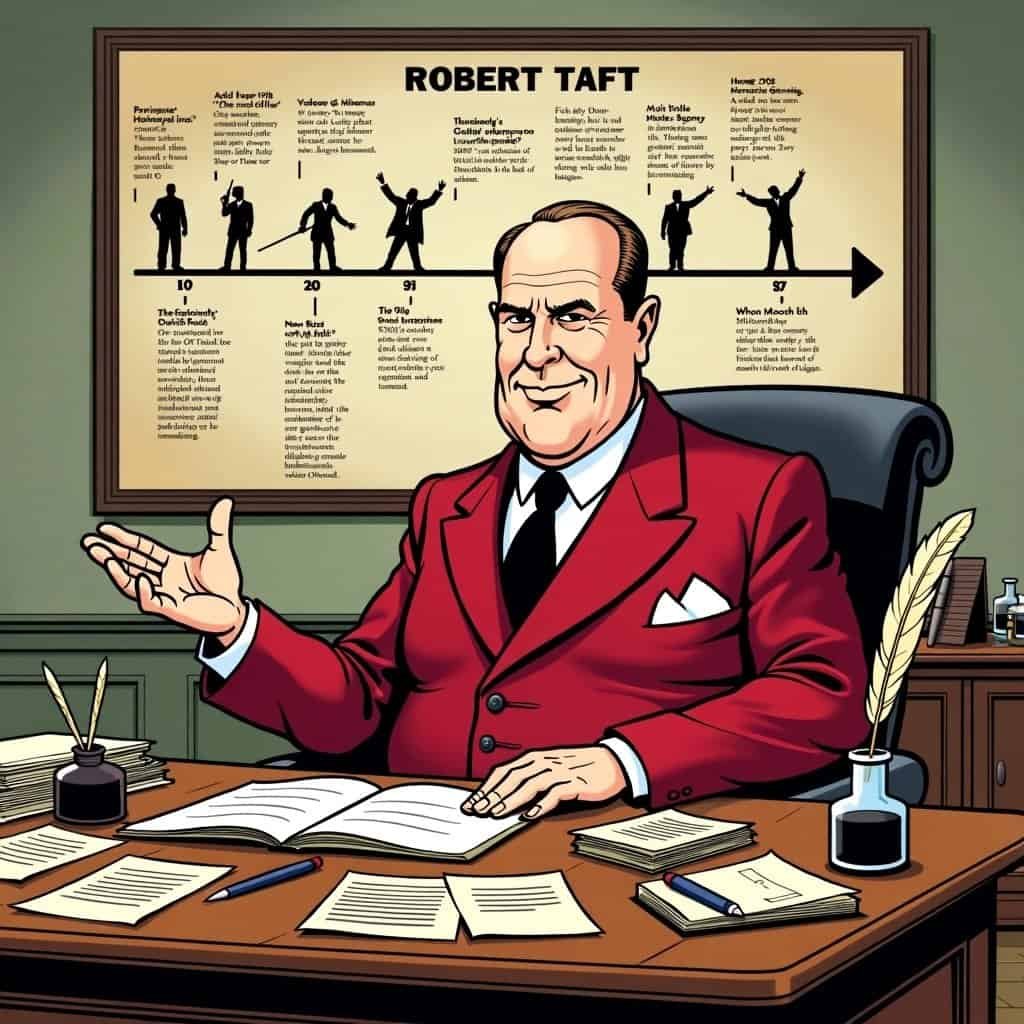Ah, Robert Taft! A name that rings through the corridors of American conservatism. Known as ‘Mr. Republican,’ Taft wasn’t just another politician—he was the poster child for conservative values that challenged the very foundations of big government. Picture a time when private sector growth wasn’t just a talking point, but a rallying cry. Taft embodied that era, and today we’ll explore how his ideas still strike a chord with conservatives who champion the free market.
So, what was Taft’s secret sauce? He was the conductor of a symphony where reduced government control and increased private sector involvement played in perfect harmony. He saw the government’s role as more of a referee than a player. Think of it as a lively economic game night where businesses are the real stars, and the government just keeps the scoreboard!
Taft’s Philosophy: More Than Just Politics
Taft wasn’t just about dry policy; he was a man of ideas. He firmly believed that when people and businesses are free to chase their dreams without excessive rules holding them back, there’s no limit to what they can achieve. This way of thinking was groundbreaking—it suggested that success could flow from the wellspring of entrepreneurship and innovation, benefiting everyone. It’s like teaching someone to fish instead of handing them a fish wrapped in bureaucratic paperwork.
“The government should be a referee, not an active player in the economy.” – Robert Taft
Taft vs. Modern Liberals: A Clash of Ideas
If we could sit down with Taft today and tell him about current liberal ideas on spreading wealth around, you can bet he’d be shocked! While Taft saw the private sector as the economy’s powerhouse, today’s progressives seem to be on a quest for wealth equality, even if it means sinking the whole ship.
The Economic Pie Analogy
Think of the economy as a pie:
- Taft’s Approach: Make a bigger pie so everyone gets more.
- Liberal Approach: Cut the same pie into smaller slices for “fairness”.
Taft’s Legacy: Nurturing Economic Growth
Taft’s push for private sector growth was like planting a seed and watching it grow into a tree with fruit for everyone. The idea that personal success and freedom lift all boats has been a key part of conservative thinking for ages. It’s a self-feeding cycle—like the gears of industry that never stop turning.
The Modern Debate: Taft’s Ideas Still Relevant
In today’s heated arguments between conservatives and liberals, Taft’s influence is still felt. His support for limited government, belief in capitalism, and encouragement of private innovation sound like sweet music compared to the noisy demands for more state control. And hey, no one’s saying capitalism is flawless—just that it tends to work better than the alternatives.
Wrapping It Up
What’s the takeaway here? The shining city on a hill isn’t built by hands tied up in red tape, but by those free to create and invest. Let’s raise a glass to Taft—the guy who reminded us that letting the private sector thrive isn’t just a nice idea, it’s the key to prosperity for everyone.
Table of Contents
- Taft’s Philosophy: More Than Just Politics
- Taft vs. Modern Liberals: A Clash of Ideas
- Taft’s Legacy: Nurturing Economic Growth
- The Modern Debate: Taft’s Ideas Still Relevant
- Wrapping It Up






